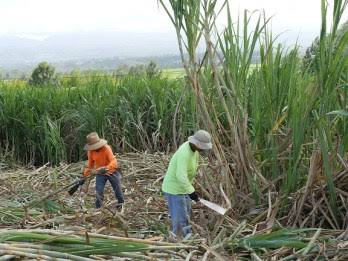The federal government has resumed discussions with the indigenous firm, Trans-Sahara Consortium, for the establishment of a sugarcane processing plant and the cultivation of 3 million hectares of soybean in the country.
This is contained in a statement by the Ministry of Finance last week Saturday following a meeting between the CEO of Trans-Sahara and the Minister of Finance, Wale Edun, held in Abuja.
The statement emphasized that the projects aim to reduce the country’s trade deficit by boosting soybean yields, increasing production volumes, and enhancing sugar production capacity.
Note that Nigeria’s sugar industry is undergoing a significant transformation, primarily through the government’s backward integration policy (BIP), which seeks to reduce import dependence by encouraging local production.
Major players like Dangote Sugar and BUA Sugar are at the forefront of this initiative, investing heavily in increasing local sugar production capacity.
Contents of the statement
“A delegation from Trans Sahara Consortium Limited, led by its Chairman, Senator Ibrahim Turak, met with the Honourable Minister of Finance and Coordinating Minister of the Economy, Wale Edun, on Friday to present the Consortium’s ambitious Soybean and Sugar Projects. These projects are designed to significantly boost Nigeria’s agricultural productivity and address the country’s trade deficit by increasing soybean yields, scaling up production volumes, and expanding sugar production capacity.
According to the statement, during the meeting, HM Wale Edun expressed his enthusiasm for the partnership, highlighting that it aligns with President Tinubu’s strategic objectives of enhancing food security and strengthening the agricultural sector.
He acknowledged the projects’ potential to make a transformative impact on Nigeria’s economy through innovation and large-scale farming.
“With a focus on driving sustainable food production in Nigeria, the Consortium plans to launch large-scale initiatives, including the cultivation of 3 million hectares of soybean and the establishment of processing plants for sugarcane, aiming to produce millions of tons of sugar for both domestic consumption and export,” the statement.
The way forward
Agriculture remains a key driver of economic growth in Nigeria, but the sector is in dire need of modernization and improved infrastructure. Increased investment in technology, irrigation, and farming techniques could help boost yields, particularly for essential crops like soybeans and sugar.
To become a net exporter of agricultural products, Nigeria must significantly increase local production, strengthen its value chains, and enhance export capabilities.
By focusing on key sectors like sugar and soybeans, the country can reduce its dependence on imports, ensure food security, and position itself as a competitive player in global agricultural markets.
Related articles


